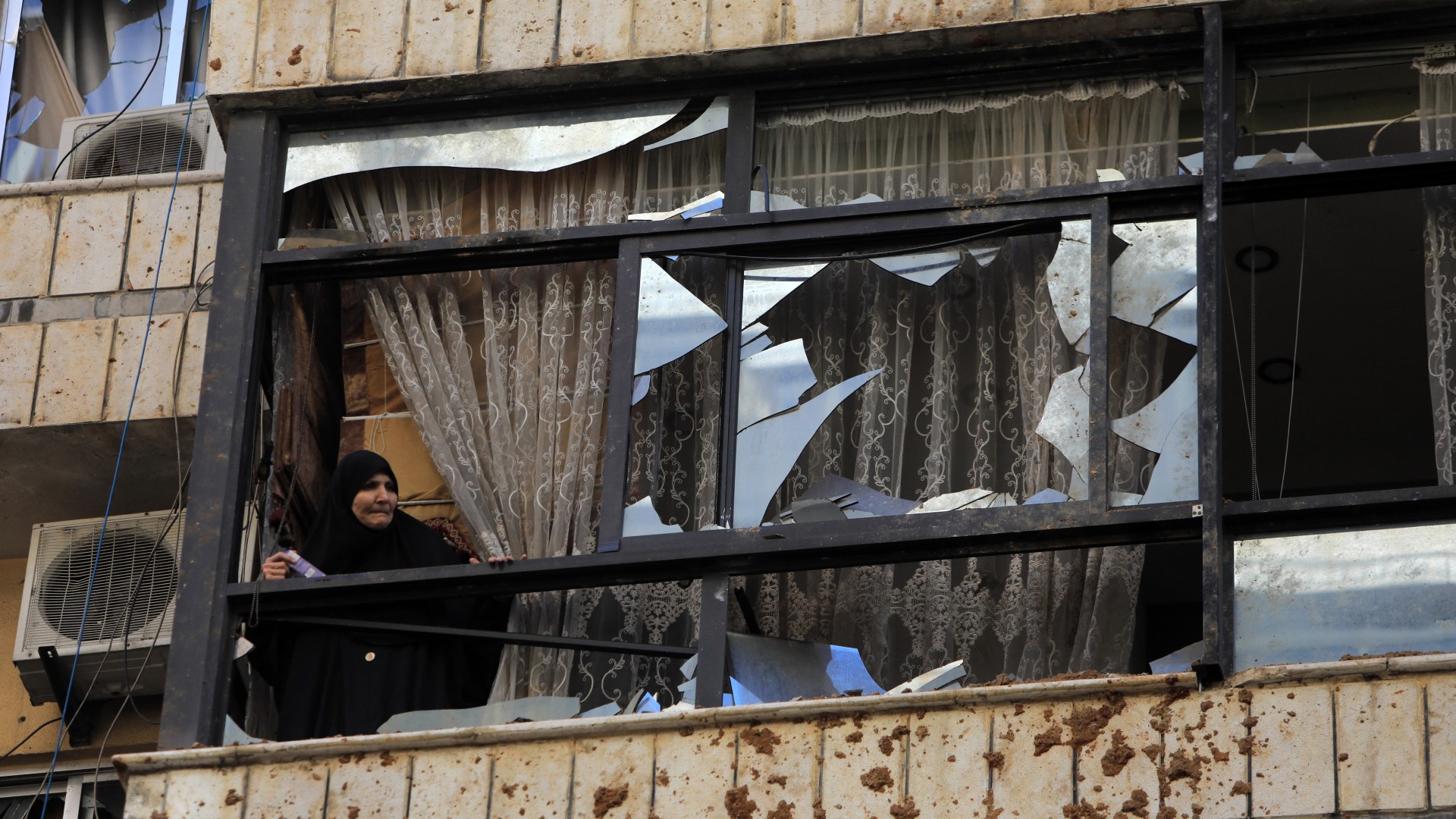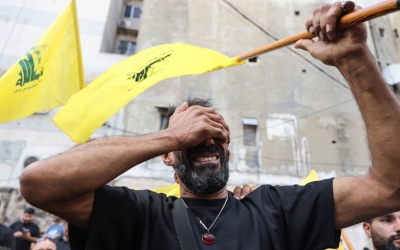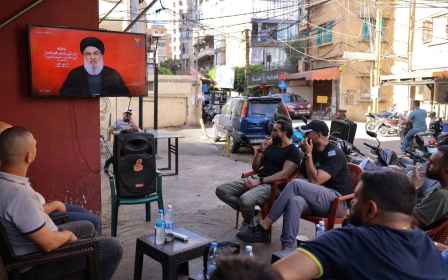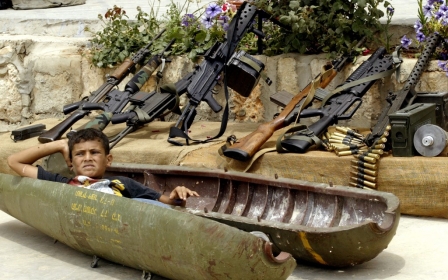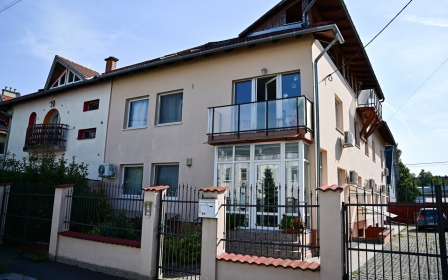Israeli strike on Beirut kills 45 including Hezbollah commanders and children
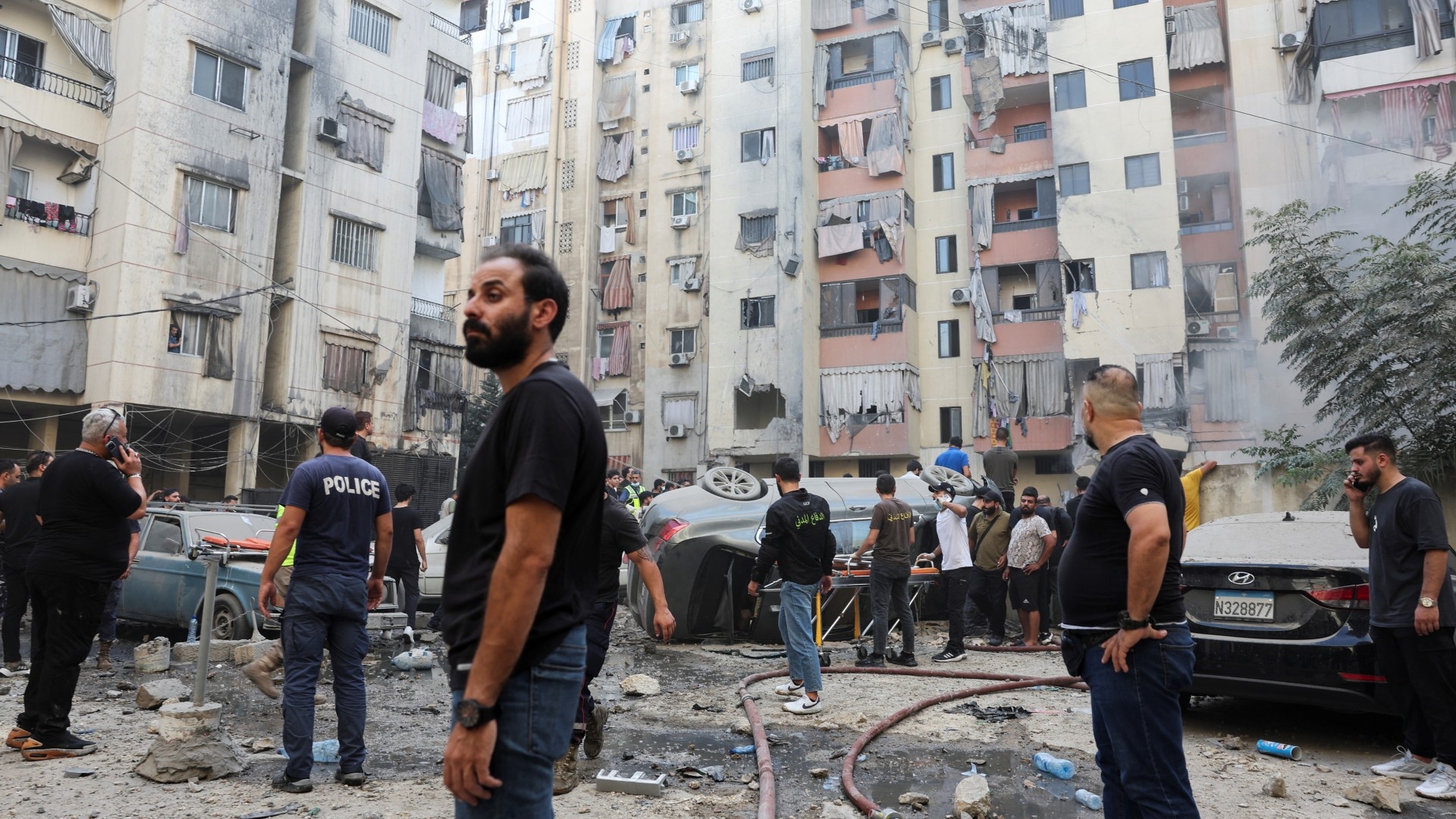
Israel killed senior Hezbollah commander Ibrahim Aqil and at least 45 others, including three children and seven women, in an air strike on a densely populated residential neighbourhood in Beirut on Friday.
Two Lebanese security sources told Middle East Eye that Aqil had been killed in the attack. Aqil was Hezbollah's second in command since the killing of Fuad Shukr in an Israeli strike on Beirut in July.
One of the sources said the Israeli strike targeted a meeting between members of Hezbollah's Radwan special forces and Abbas Brigades.
According to source, the meeting was being held in a tunnel under a residential building, a location that was being used for the first time, which has raised Hezbollah's concerns about the extent Israel has infiltrated its ranks.
The source added that the meeting included prominent leaders from the two units, and its goal was to plan an operation in northern Israel's Galilee.
New MEE newsletter: Jerusalem Dispatch
Sign up to get the latest insights and analysis on Israel-Palestine, alongside Turkey Unpacked and other MEE newsletters
Hezbollah confirmed the death of 16 of its members in the strike, including Aqeel and another senior commander, Ahmed Mahmud Wahbi.
The Lebanese civil defence said the strike collapsed two buildings in southern Beirut's Jamous neighbourhood. According to Lebanon's health ministry, at least 45 were killed in total and 68 wounded.
A journalist at the scene told MEE that Hezbollah was not allowing anyone near the blast site and that body parts were being retrieved from the rubble. Some onlookers were searching for relatives, displaying photographs of missing children.
In response to the strike, Hezbollah said it targeted the main intelligence headquarters in northern Israel with rockets, saying it was "responsible for assassinations".
Lebanese Prime Minister Najib Mikati said the strike on Beirut shows Israel "gives no weight to any humanitarian, legal or moral considerations".
The United States had placed a $7m bounty on Aqil, accusing him of involvement in the 1983 bombing of the US embassy in Beirut, which killed 63 people, and the attack on the US Marine barracks in Lebanon the same year, which killed 241 others.
Randa Slim, an analyst with the Middle East Institue, described Aqil as an "elite commander" who has been with the party for a very long time.
"And he’s of course very close to Hezbollah leader Hassan Nasrallah," she told MEE, adding that Aqil played a major role in Hezbollah's intervention in the Syrian war, where it supported President Bashar al-Assad.
“Israel's going after all the commanders one by one, and by doing that you are definitely weakening the infrastructure of the organisation, weakening the command and control structure," she added.
"But it’s not going to kill Hezbollah, it’s not going to force them to capitulate.”
Israel and Hezbollah's almost year-long conflict reached new heights this week when thousands of pagers and handheld radios were detonated in two shocking Israeli attacks.
The blasts killed 37 people, including two children, and wounded thousands more - many severely.
On Thursday, Israeli warplanes pummelled southern and eastern Lebanon with air strikes as Nasrallah gave a speech vowing revenge and insisting that his movement would not abandon the Palestinians in Gaza.
This latest conflict between Israel and Hezbollah, a movement born out of resistance to Israel's 1982-2000 occupation of south Lebanon, began the day after the 7 October Hamas-led attack on Israeli communities near Gaza.
Hezbollah has said it does not seek a large-scale war with Israel and will stop its rocket and artillery strikes, which it says are conducted in solidarity with the people under fire in Gaza, once a ceasefire is agreed upon between Hamas and the Israeli government.
The fighting has resulted in hundreds of Lebanese deaths, including civilians and Hezbollah fighters, as well as dozens of Israelis. Tens of thousands on both sides of the border have been displaced. In Gaza, Israeli forces have killed more than 41,000 Palestinians.
Russia, Jordan and Egypt have all said that Israel's attacks this week are an attempt to drag the Middle East into a broader regional war.
Aqil's assassination, as well as the pager and radio attacks, have rocked Lebanon and posed serious questions about Hezbollah's internal security and the extent its cadres may be infiltrated.
A source close to Hezbollah told MEE on Thursday that the movement has internally acknowledged the existence of a crack in its closed network and is now investigating the extent of the security breach.
“Hezbollah suspects that the level of infiltration within its ranks, including in its closed circle of leadership, is likely significant, otherwise this attack wouldn’t have taken place,” the source said of the pager and radio attacks.
Slim said Aqil's killing shows it's "very clear they are deeply infiltrated".
She noted that Hamas leader Yahyia Sinwar spent a long time before 7 October purging the Palestinian group's ranks of Israeli spies.
"Hezbollah now is forced to do the same kind of work of purging their ranks of Israeli spies in the midst of a war, in the midst of the battle. That’s going to be very hard to do,” she said.
Middle East Eye delivers independent and unrivalled coverage and analysis of the Middle East, North Africa and beyond. To learn more about republishing this content and the associated fees, please fill out this form. More about MEE can be found here.


